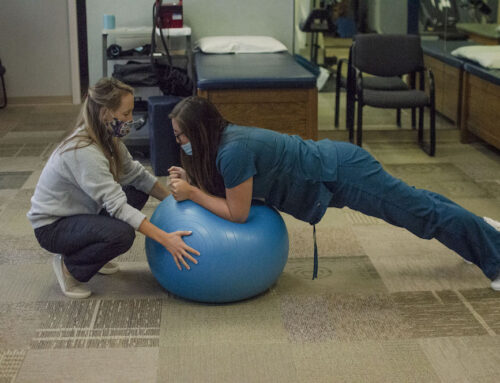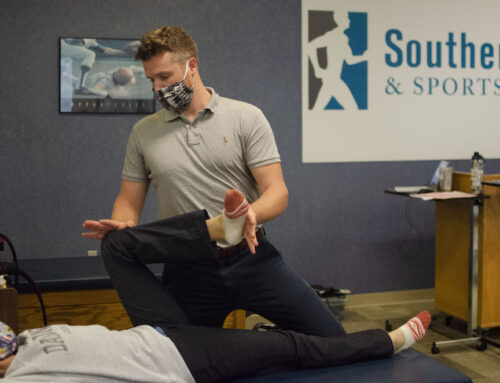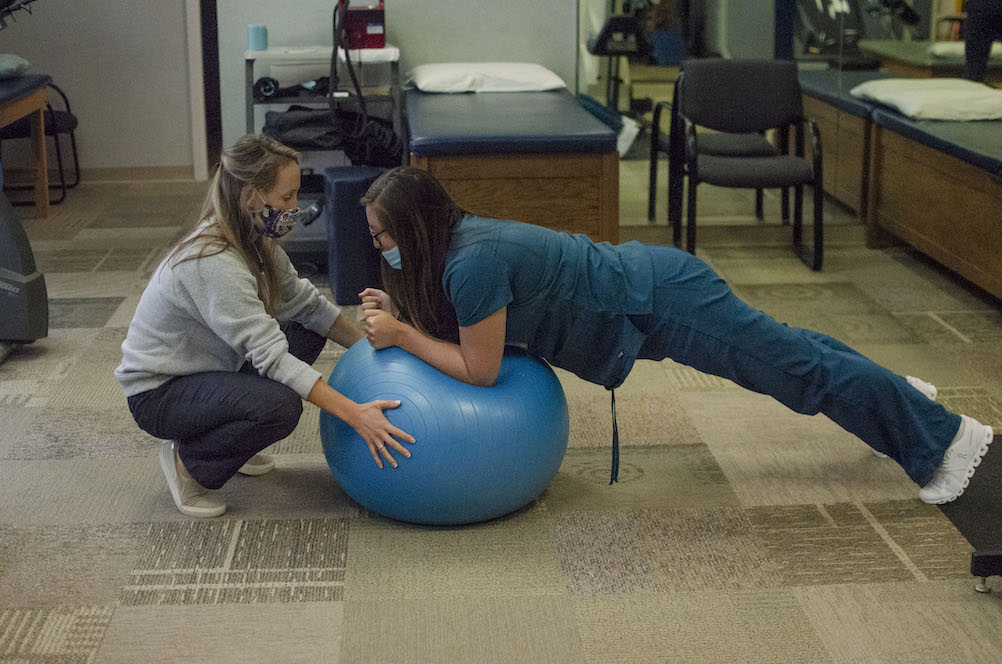Plantar Fasciitis is a condition in the foot that causes heel pain. The most common sign of plantar fasciitis is severe pain when first getting out of bed in the morning. People with this condition may experience sharp, stabbing pains during their first few steps each day. The pain usually improves as the foot loosens up but may later worsen after hours of standing and walking.
Plantar Fascia is the connective tissue that supports the arch of the foot. It runs from the heel to the base of the toes. The Plantar Fascia is meant to sustain tension when the foot bears weight, but overuse and sudden increases in activity can stress it.
What Causes It?
Plantar fasciitis is a common running injury, but any weight-bearing activity can cause it. It’s common during the spring months because people often move from a sedentary lifestyle to a more active one. Any sudden increase in weight-bearing activity, including running, walking, or using an elliptical machine can stress the plantar fascia. While it can occur to anyone during any time of year, spring brings an influx of plantar fasciitis cases.
Diagnosis
Physical therapists are trained to diagnose and treat plantar fasciitis. It is important to seek treatment soon after noticing heel pain. Plantar fasciitis is the most common cause of heel pain and is much easier to treat when the condition is new. A physical therapist may diagnose plantar fasciitis after asking when the pain is most severe. If heel pain is at its worst early in the morning, it is likely plantar fasciitis. Physical therapists may also diagnose by pressing on the plantar fascia to determine if that causes pain.
Treatment
Treatment for plantar fasciitis depends on how long the condition has existed. Patients who seek treatment quickly may find relief in two or three visits (combined with a home program). Treatment often includes calf stretching, icing the foot, a night splint, and anti-inflammatory medications. Older injuries can take four to six weeks to resolve, and treatment may require fitting for orthotics and manual therapies such as ultrasound and dry needling.
If you have heel pain that persists for a week, call to schedule an appointment with a physical therapist. If you are suffering from plantar fasciitis, it’s important to begin treatment as soon as possible. Allowing plantar fasciitis to persist will increase your treatment time and may result in chronic heel pain. Additionally, changing the way you walk to decrease heel pain can cause issues in your back, hips, and knees.
Do I Need a Physician Referral?
You do not need a physician referral for a physical therapy evaluation. Most insurance covers physical therapy without a referral. If you suspect you have plantar fasciitis, call Southern Rehab and Sports Medicine directly for an appointment.
At your first visit, a physical therapist will determine if your heel pain is plantar fasciitis and begin treatment. You may walk out of the clinic with your home program instructions and quickly see improvement. We are fully equipped to fit you for orthotics, if necessary, so your complete treatment can occur within our clinic.
Make an Appointment
Call one of our three offices or fill out the form below for an appointment. We want to help!









